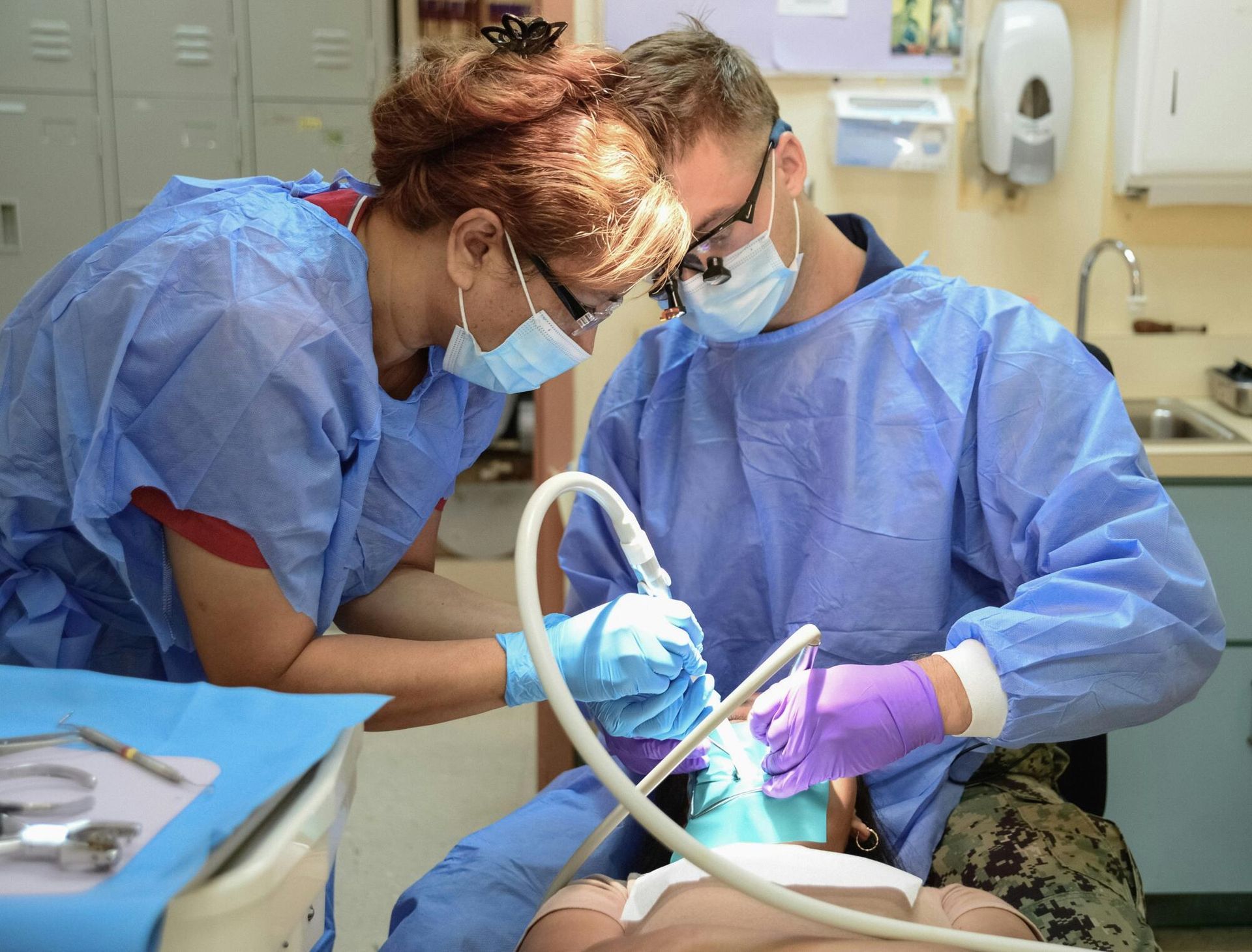Natural Remedies for TMJ Relief
There are some ways to have some TMJ relief by using natural remedies. Let's identify some of the most successful options according to a dentist in Burke VA.

Do you experience any of the following issues?
- Sore jaw
- Jaw popping
- Locked jaw
- Pain in your ear, head, and cheeks
These are all signs of temporomandibular joint disorders (TMJ), and around 10 million people struggle with these issues.
Unfortunately, TMJ is painful and might require dental assistance. However, you can seek help from a TMJ dentist in Burke, VA, for solutions.
A dentist might recommend trying some natural remedies for relief. Here are some of the options the dentist might recommend.
Understand TMJ to Find Relief
The temporomandibular joint connects your jawbone to your skull, and you'll find one joint on each side of your face.
These joints control your jaw movement, which means you use them when chewing, yawning, opening and closing your mouth, eating, and talking. So basically, you use these joints all the time.
When you develop TMJ, you experience jaw joint pain when performing these activities. You might also have pain even when you're not moving your jaw.
TMJ disorders occur for numerous reasons. For example, some people develop TMJ from arthritis. Others develop it from grinding their teeth while sleeping, but you can develop it for many other reasons.
When you have TMJ, you might feel slight pain and discomfort. However, some people experience extreme pain. Some people even struggle with opening and closing their mouths when they have extreme cases of TMJ.
Avoid Eating Certain Foods
The first thing most dentists recommend for treating TMJ is to avoid certain foods. This is because the things you eat can contribute to the pain and discomfort of TMJ.
First, it would help to avoid sticky foods that are hard to chew. Taffy is the perfect example of a sticky food that might worsen your symptoms.
Secondly, avoid hard foods unless you chop them up well before consuming them. For example, biting down on a raw carrot stresses these joints, causing further pain.
You can talk to a dentist in Burke, VA, to learn more about foods to avoid.
Apply Ice
When your temporomandibular joints become inflamed, you'll feel more pain. Unfortunately, inflammation is hard to avoid with these joints as you use them for many things.
One of the best natural remedies for TMJ is to apply ice to these areas. Ice reduces inflammation and swelling, which might relieve your pain.
You can apply ice when you experience pain or to prevent pain. To do this, place an icepack on both sides of your face, covering each joint. Leave the ice in place for 15 minutes.
You can do this multiple times daily to reduce or eliminate the pain your TMJ causes.
Wear a Mouth Guard
Many dentists also recommend wearing a mouth guard to protect these joints. A mouth guard is a device custom-made to fit inside your mouth. You wear it while sleeping.
A mouth guard separates your upper and lower arch, protecting it. You might grind your teeth while sleeping with a mouth guard. However, the guard protects your teeth from the damage grinding causes.
Additionally, the mouth guard takes the stress off your temporomandibular joints while sleeping, even if you grind your teeth. This occurs from the gap it creates between the two arches.
This is one of the best TMJ remedies if you grind your teeth or clench your jaw while sleeping. It's also an excellent choice if you wake up with TMJ pain.
It's important to get a mouth guard from your dentist, even though you can buy over-the-counter products at stores. A dentist-made guard will fit properly to alleviate the jaw pain you experience.
Perform Jaw Exercises
Many dentists also recommend treating TMJ naturally with exercises or physical therapy. The goal of exercising the joints is to strengthen the muscles they use.
For example, place your tongue on the roof of your mouth. Next, slowly open your mouth as wide as possible. Hold this position for ten seconds, rest, and repeat. This exercise helps improve your jaw's range of motion.
Another exercise is to place pressure on both jaws with your hands while your mouth is closed. Next, slowly open your mouth, attempting to open it without hearing or feeling any jaw clicks.
You can also visit a physical therapist to work on your jaw issues. They'll teach you exercises and techniques to use daily to improve its functions and decrease pain.
Use Massage
Massage therapy is a relaxing activity that most people enjoy. While most people seek massages for back or neck pain, you can also seek them for other purposes, including TMJ.
In addition, you can perform massages on your jaw muscles and joints to alleviate the pain. To do this, gently massage both jaws. Repeat this as often as you'd like.
Practice Relaxation
Tension in the jaw increases your risk of developing TMJ. It also worsens the symptoms. Unfortunately, many people tense their jaws without realizing it.
You can determine if you do this by being intentional about it. For example, take note of your jaw at various times of the day. Are you clenching it inadvertently?
If so, practicing relaxation techniques can provide the relief you need. Working on relaxing your jaw muscles alleviates the tension and stress you inadvertently apply throughout the day.
Relaxation with other natural remedies might solve your TMJ problems. If so, you can avoid the surgical options that dentists provide.
Visit a TMJ Dentist in Burke, VA
Suffering from TMJ is frustrating, as the pain and discomfort can affect every part of your life. But there are solutions, and many natural ones provide relief.
Try the natural remedies listed here or talk to a TMJ dentist in Burke, VA. A dentist can explain more natural remedies in-depth and provide dental solutions that might help.
Contact our office to learn more about treating TMJ in Burke, VA.












